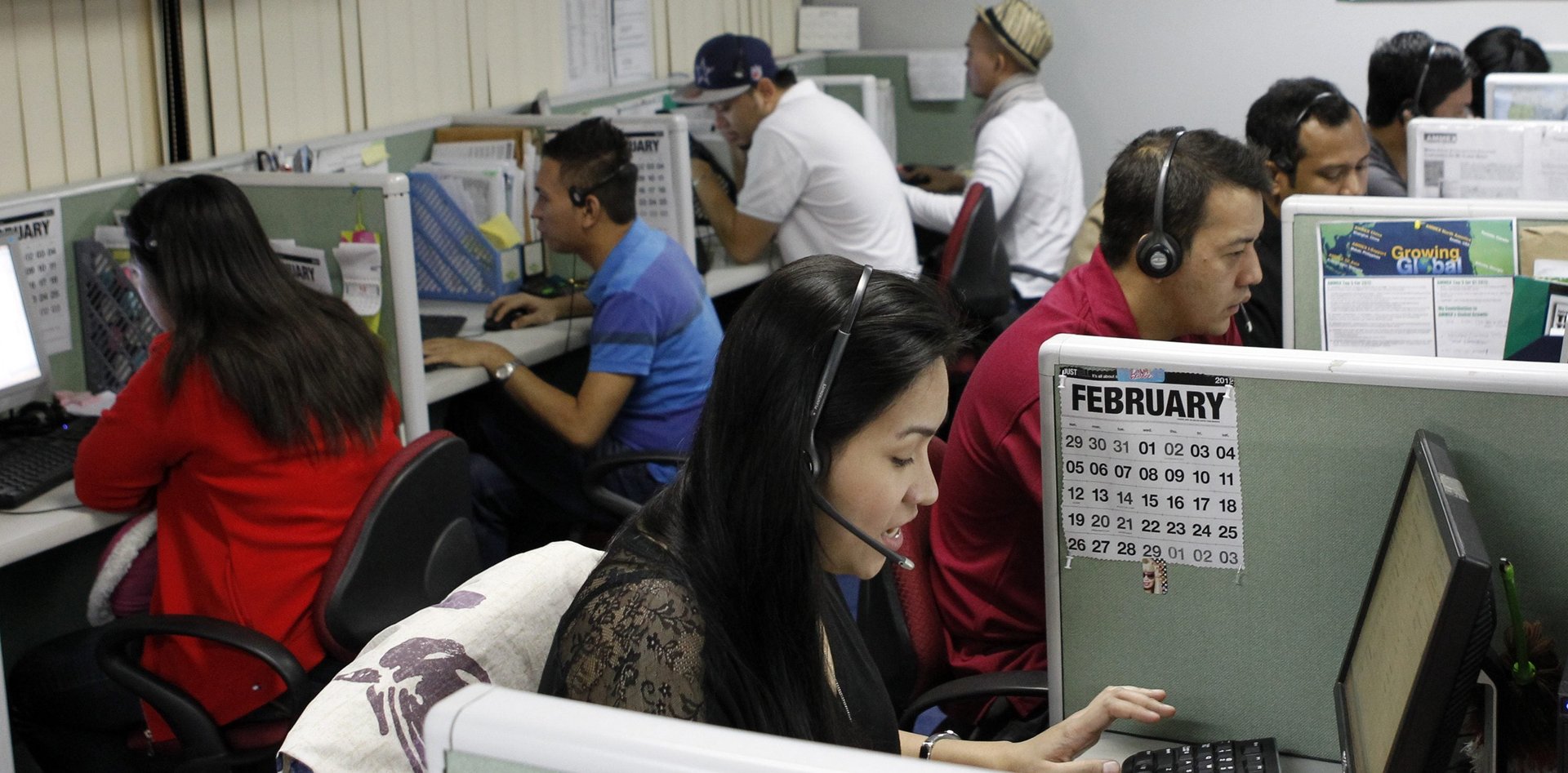Rodrigo Duterte’s break with the US threatens the Philippines’ largest domestic industry
If you’ve ever called customer support at Amazon, American Express, or Citibank, chances are you were speaking to someone in the Philippines.


If you’ve ever called customer support at Amazon, American Express, or Citibank, chances are you were speaking to someone in the Philippines.
But the country’s massive call-center industry, which now outstrips India’s (paywall) by revenue, could suffer as a result of Philippine president Rodrigo Duterte’s bravado. He announced Oct. 20 during a trip to China that he wants to break away from the US, a close economic and military ally, and align with Beijing instead.
The business process outsourcing (BPO) industry is the second-largest source of income for the Philippines after overseas foreign workers, generating 1.2 million jobs and $22 billion in revenue in 2015. By one estimate, 77% of BPO services are for American companies.
“I’m a bit worried about the implications of [Duterte’s] statement. However, given his nature, the government needs to clarify the statements he made,” said Gary Calpito, 32, who works in the call center industry in Taguig City. “As of the moment, it’s unclear if there’ll be an impact on the BPO industry.”
Since coming to power in the summer, Duterte has trash talked the US, which he describes as a colonizer of the Philippines. Despite a long-running dispute with China over territorial claims in the South China Sea, Duterte has pushed to move closer to Beijing. China, Duterte has said, does not criticize his war on drugs, which has killed thousands of people extrajudicially.
Gary C. Alejano, an opposition congressman, warned of serious economic effects in a statement responding to Duterte’s latest pronouncements. “It could impact our economy in terms of the investments and opportunities that we are enjoying right now like the growing BPO industry with US companies as its main client,” he wrote. He added that overseas foreign workers in the US comprise some 35% of remittances to the Philippines. “I don’t think China could match that.”
“There are some jitters among clients,” Genny Inocencio-Marcial, a representative of the IT and Business Process Association of the Philippines, told television station ABS-CBN on Oct. 14. “But I’ve told them that this rhetoric that we’ve been hearing, the political noise, doesn’t necessarily translate to policy changes… Nobody’s pulling out.”